WILLS
Should I have a Will?
A will is a legal document which allows you to direct the distribution of your property, determine who will represent your estate after your death, and to designate a guardian for any minor children. A clearly written will can alleviate stress, expense and confusion for your loved ones at a time of mourning. If you should pass away without having a will, there are intestacy laws which will determine the distribution of your assets. This may have unintended or undesirable consequence.
What goes into my Will?
The first consideration is to choose an executor for you will, and also to designate a guardian for any minor children. Your will should then name your beneficiaries, and indicate how the estate is to be distributed. The will may include instructions as to trusts and define the scope of responsibility of your executor.
Are some assets distributed regardless of the provisions in my Will?
Joint Tenancy – Real estate or property you hold in joint tenancy with right of survivorship does not form part of your estate, but automatically goes to the surviving joint owner.
Pension Plans – Most RRSPs and RRIFs allow you to name a beneficiary. If so, the proceeds are paid to the named beneficiary. The proceeds can be “rolled over” tax free to your spouse. But be careful! The RRSP/RRIF is deemed to have been “cashed- in” immediately prior to death. Thus, if no rollover is available, the estate will pay the tax while the beneficiary enjoys all the proceeds. This can create a hardship.
Life Insurance – The proceeds of a life insurance policy are paid to the beneficiary named in the policy. They do not go to the estate unless the estate is named as the beneficiary. You can make an insurance declaration in your Will to change the named beneficiary and can set up an insurance trust – separate from the estate trust.
Intro Vivos Gifts – Gifts and family trusts can be made during your lifetime.
How often should I revise my will?
A will that is out of date due to a change in family or financial situation can cause considerable problems and confusion. It is therefore vital to review your will any time there are important changes to your situation.
Death & Taxes
Death triggers capital gains, and any RRSPs, RRIFs or other pension plans that you may have will become taxable. Certain “rollovers” and exemptions may be available depending on the circumstances. Your Executor is responsible to ensure that your final Income Tax return is prepared and that all taxes owing are paid prior to final distribution of your Estate. There are no inheritance or Estate Taxes in Alberta, so Alberta beneficiaries will not be taxed on any monies received.
Enduring Power of Attorney
This document allows you to designate a person of your choosing to manage your financial and legal affairs on your behalf. It can specify that the Power of Attorney only be utilized in the event that you lose the capacity to make these decisions due to injury or illness.
Personal Directive
Often referred to as a “living will”, the Personal Directive is a document which allows you to designate a person to be responsible for your health care and matters of a personal nature in the event you are unable to do so due to injury or illness. This could be matters such as such as where you will live, daily activities, and the medical treatment you will receive.
Your situation is unique
Each person’s situation needs to be looked at individually to ensure that all aspects of family and financial planning have been considered, and are provided for with appropriate documents that will ensure you and your family are best protected in every eventuality.


